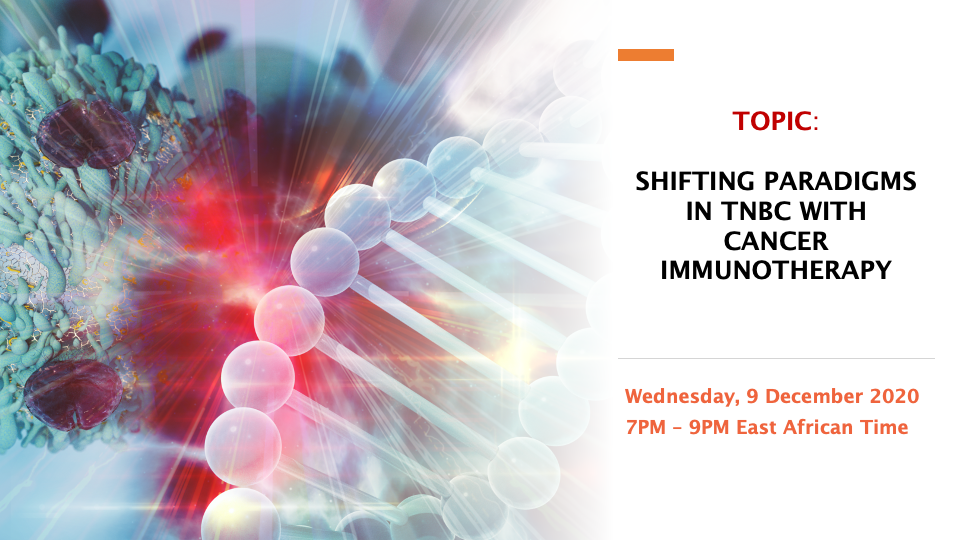
- This event has passed.
Shifting Paradigms In Triple-Negative Breast Cancer (TNBC) With Cancer Immunotherapy
Event Navigation

Moderator: Dr.Njoki Njiraini Sponsor: Roche Presenters:
- Prof. Asim Jamal Shaikh, Associate professor of Medicine, Consultant Medical Oncologist, Aga Khan Hospital, Nairobi.
- Prof. Peter Schmid, Lead, Centre for Experimental Cancer Medicine, Barts Cancer Institute, St Bartholomew’s Hospital the Queen Mary University of London.
- Prof. Nadia Harbeck, MD LMU Breast Center.
Triple-negative breast cancer (TNBC) is a heterogeneous disease with differential gene expression profiles. The morphological subtypes of TNBC include ER, PR, and Her 2 Neu Negative cancers. Hormone receptor-negative patients are usually young (mean age 48.8-34%) and are diagnosed with grade III tumors. The biomarkers are different for African, African American, and caucasian women The differences have clinical and biological implications which could be targeted for the development of personalized therapeutics. Testing for immunohistochemistry and participation in clinical trials may improve disease management, which is a global challenge as well as in Kenya. Poor handling of collected samples, challenges with sample analysis, quality control, and data registry affect data collection in Kenya. There are challenges with the correct pathologic diagnosis, as a result of differences in diagnostic methods. Testing for immunohistochemistry and participation in clinical trials may improve disease management. Data generated by molecular and genomic profiling is promising to open new therapeutic options. Today, neoadjuvant therapy is the standard for early TNBC management. Immunotherapies targeting single-agent anti-PD-L1/PD-1 in combination with chemotherapy are effectively treating TNBC, with good tolerability. Sacituzumab is a new antibody-conjugate in the treatment of TNBC. Other treatment options involve offering multiple lines of treatment, where standard chemotherapy contains anthracyclines and taxanes. However, the cost of treatment and diagnostics is still a big challenge in Kenya.
Webinar Recording